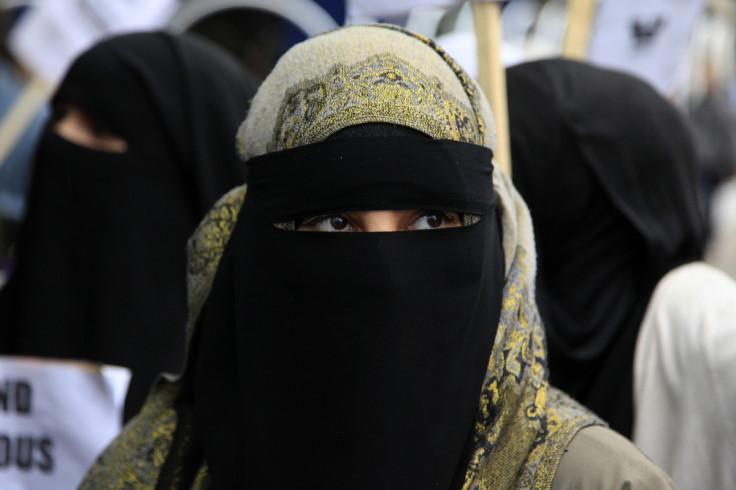German ministers consider burqa ban in response to terror threat
Ministers also plan 15,000 more armed police by 2020 and increased surveillance of public transport.
A burqa ban is among a series of measures to be proposed by German Interior Minister Thomas de Maiziere following terror attacks carried out by refugees.
Maiziere and state interior ministers from the Christian Democrats (CDU) and their parliamentary allies, Chancellor Angela Merkel's Christian Social Union (CSU), are seeking to introduce series of legal and police reforms in response to the terror threat.
The ministers plan to deploy 15,000 more armed police officers by 2020, and increase surveillance of public transport. They would also ban burqas and niqabs, the veils worn by some Muslim women, Deutsche Welle reported.
Maiziere also wants to speed up the deportation of failed asylum seekers who are a threat to public safety, according to Bild.
France became the first European country to ban face coverings like the burqa in public in 2010, a controversial policy that was criticised by some human rights groups as infringing on religious freedom. Belgium and Switzerland have also since introduced bans.
Earlier this month German deputy finance minister Jens Spahn declared his support for a German burqa ban.

On 19 July, a 17-year-old Afghan refugee injured five people in a knife and axe attack near Wuerzburg, southern Germany, before being shot dead by police. It was followed on 24 July by a suicide bomb attack by a 27-year-old Syrian refugee near a music festival in Ansbach in which 10 people were injured. Both attacks were claimed by jihadist group Islamic State (Isis).
The attacks have led to increased opposition in Germany to Chancellor Angela Merkel's policy of granting asylum to refugees from war zones.
Among other measures being considered by de Maiziere and his regional allies are measures to deport foreign hate preachers, and end the dual citizenship of those found to have fought for "foreign terror organisations." The Ministers and regional party chiefs will meet on 18 August to finalise the measures, which will then require the approval of Germany's upper house of parliament, the Bundesrat.
© Copyright IBTimes 2024. All rights reserved.







